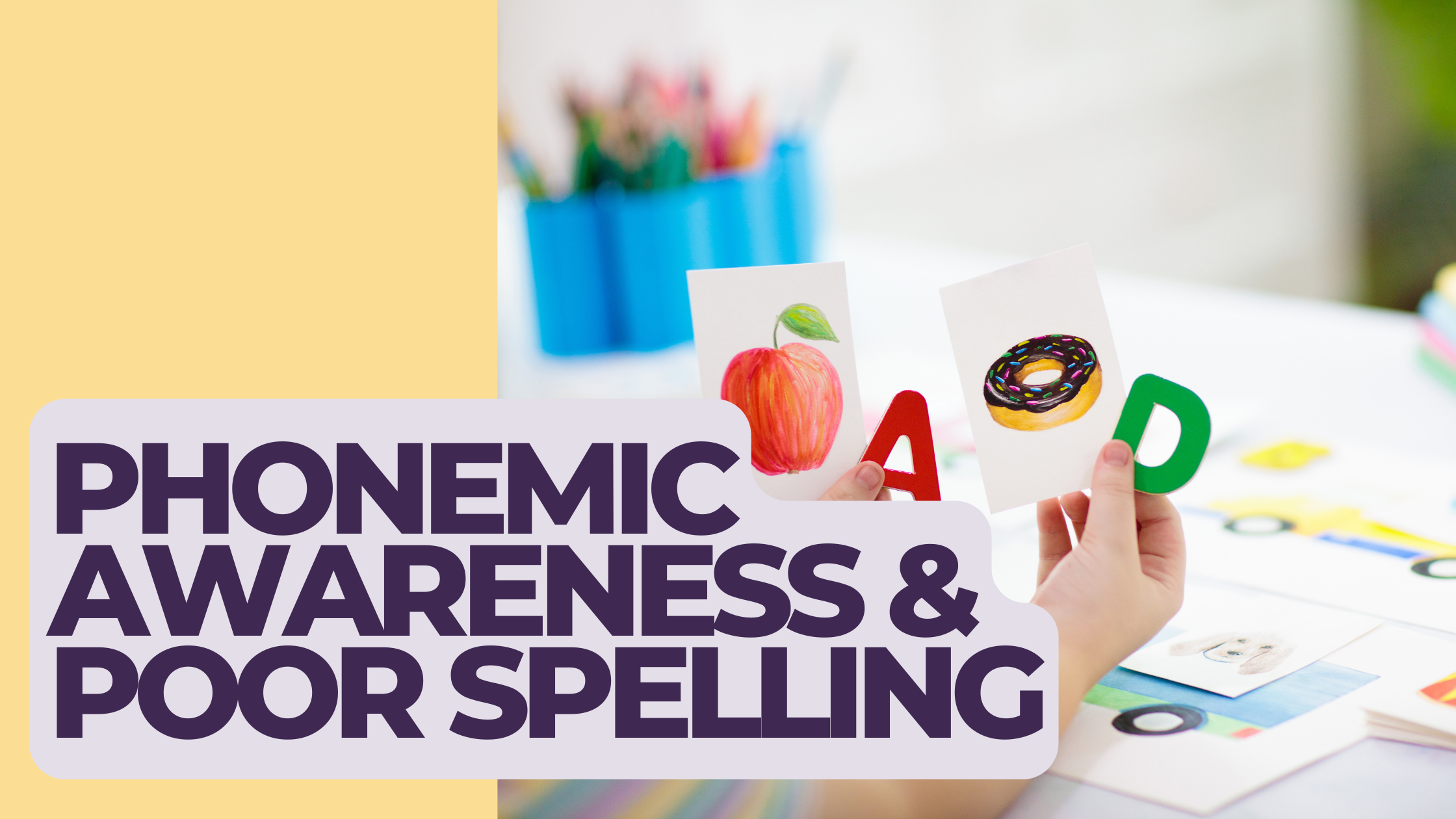Unraveling the Link Between Weak Phonemic Awareness and Poor Spelling
Have you ever wondered why some people struggle with spelling, while others seem to be born with an innate ability to put pen to paper and craft perfectly spelled sentences? The answer could lie in something called phonemic awareness. In this educational blog post, we will explore the connection between phonemic awareness, phonological awareness, and spelling, and discuss the implications for those with weak phonemic awareness.
What is Phonemic Awareness?
Phonemic awareness is a crucial building block of literacy. It refers to a person's ability to recognize, identify, and manipulate individual sounds (phonemes) in spoken words. In simpler terms, it's the skill that enables us to break down, blend, and rearrange the individual sounds within words to create new ones, like turning the word "cat" into "bat" by swapping out the first sound.
Phonological Awareness vs. Phonemic Awareness
It's worth noting that phonemic awareness is just one aspect of the broader concept of phonological awareness. Phonological awareness refers to a person's understanding of the different sound structures within words, including syllables, rhymes, and phonemes. While phonemic awareness is a more specific skill that focuses solely on individual sounds, both phonological and phonemic awareness are critical for successful reading and spelling.
How Does Weak Phonemic Awareness Affect Spelling?
Research has consistently shown a strong correlation between phonemic awareness and spelling ability. In fact, weak phonemic awareness is considered one of the primary causes of poor spelling. But why is this the case?
Difficulty Segmenting and Blending Sounds
People with weak phonemic awareness often struggle to segment (break apart) and blend (put together) individual sounds within words. This hinders their ability to match sounds with their corresponding written symbols (letters), which is the foundation of spelling. For example, someone with weak phonemic awareness may struggle to identify that the word "dog" is made up of three individual sounds - /d/, /o/, and /g/.
Mispronunciation of Words
Weak phonemic awareness can also result in the mispronunciation of words, which directly impacts a person's spelling. If someone pronounces a word incorrectly, they will likely spell it based on this incorrect pronunciation. This is especially problematic for English, which has numerous irregularly spelled words and homophones (words that sound the same but have different meanings and spellings).
Insufficient Vocabulary and Language Exposure
Finally, weak phonemic awareness can result from limited exposure to language and vocabulary. This is particularly true for second-language learners, who may have less experience with the specific phonemic patterns of their new language.
What Can Be Done to Improve Phonemic Awareness and Spelling?
Targeted Phonemic Awareness Instruction
Research has shown that targeted phonemic awareness instruction, particularly in the early years of schooling, can significantly improve spelling and overall literacy. Activities such as sound matching, sound isolation, and sound manipulation can help to develop and strengthen these crucial skills.
Multisensory Teaching Methods
Incorporating multisensory teaching methods, such as using visual aids, auditory cues, and tactile experiences, can help to engage learners with weak phonemic awareness and reinforce the connection between sounds and their written symbols.
Encouraging Reading and Language Exposure
Lastly, encouraging reading and exposing children to a rich and diverse variety of languages can help to build their phonemic awareness skills and vocabulary. Reading aloud to children, engaging in conversation, and introducing new words are all effective strategies for promoting language development.
Conclusion
In conclusion, weak phonemic awareness is a significant factor that contributes to poor spelling. By understanding the role that phonemic awareness plays in literacy development, educators and parents can implement targeted strategies to support the development of these critical skills and, in turn, improve the spelling abilities of those who struggle. Schedule a free online reading assessment if you suspect that your child’s poor spelling might be linked to a weak phonemic awareness.

